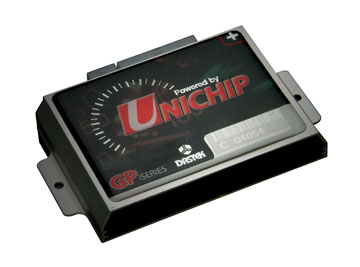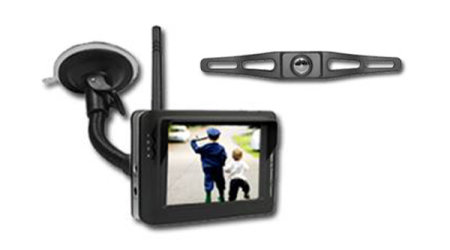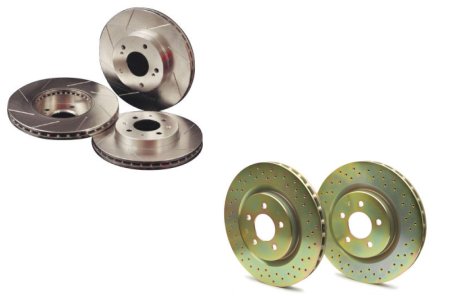 All Entries in the "Toyota Tundra Accessories" Category
All Entries in the "Toyota Tundra Accessories" Category
UniChip Performance Chip Engine Tuner
Toyota does a few things differently than most of their competitors. While some of these differences are quite good (see industry leading quality and reliability for decades), some of these differences are, well, weird. Toyota doesn’t offer special orders, for instance. Toyota charges extra for floor mats on all of their vehicles (weird). Toyota also locks down their engine computer control systems making it almost impossible for aftermarket performance chip manufacturers to “crack” the codes and start playing with the motor’s performance settings.
Enter Unichip. Since Toyota locks their computer control systems, it’s hard (maybe impossible) to create an engine tuner (aka programmer) that will interface with the computer and change ignition timing, fuel delivery, etc. Jet, Superchips, and others don’t offer programmers for a lot of Toyotas because it’s just too expensive and/or difficult to crack the code and design one.

Unichip Performance Chip
Unichip bypasses the problem by interfacing with the signals that are passed to the engine control module (ECM).
Search terms people used to find this page:
- tundraheadquarters
Three Backup Camera Options for the Truck Owner
If you have young children, then you have probably thought long and hard about installing a backup camera on your pickup. Even if you don’t have kids, not knowing what is directly behind your truck while backing up can put butterflies in the stomach of even the most experienced driver. It’s embarrassing to lightly tap a wall or back over someone’s bike, and you can really damage your vehicle if something were to occur with the tailgate down. Likewise, young ones can’t always be counted on make the best decisions while playing near your parking area.

Autero Wireless Backup Camera
There are many different camera options available for most trucks, including three for the Tundra.
Search terms people used to find this page:
- tundraheadquarters
After Market Brake Pads For Trucks and Towing
Towing is a big part of why people buy trucks, and anyone that knows will tell you that powerful engines and powerful brakes are essential for good towing. While there are quite a few things you can do to add power to your truck – after-market air intakes, TRD superchargers, and after-market truck exhausts, we’ve decided to discuss what you can do to make your braking system better.
After a reviewing slotted and drilled rotors for trucks and discussing whether or not slotted or drilled rotors are good for towing, it’s time to consider after-market brake pads available for trucks and designed for towing.
Search terms people used to find this page:
- tundraheadquarters
Are Slotted or Drilled Rotors Worthwhile for Towing?
In part one, we talked about overheated truck brakes from towing or hauling and how slotted and drilled rotors can help. In this post, we’ll answer the question: Are slotted or drilled brake rotors worthwhile for towing?
Towing and or hauling can create some extraordinary circumstances for even the stoutest braking system. In the steep mountains of Colorado, “runaway truck ramps” are a common sight because so many trucks (big and small) experience brake failure. But are a set of drilled or slotted rotors going to make a big difference when you’re towing or hauling with your pickup?
In a word, yes. Drilled and slotted rotors are for real – they can improve braking performance in a lot of different situations. In many situations where a stock set of truck brakes would overheat and fade, after-market rotors will continue to perform. Of course, like any after-market part, there are a few trade-offs to consider.
Search terms people used to find this page:
- tundraheadquarters
Slotted Cross-Drilled Rotors For Trucks and Towing – Part One
FACT: The brakes that were installed on your truck at the factory are a compromise between cost, performance, durability, and noise. While they do an excellent job of stopping your truck (even when there’s a big load being towed behind), they are far from the best option available to you. While there are some trade-offs, buying an after-market set of brake rotors can boost your truck’s braking performance (especially while towing and hauling).

In a nut-shell, most modern trucks (or trucks with disc brakes) have two main brake components – rotors and pads. Rotors are the large, flat rotating mass that are attached to your wheel hubs. Brake pads press up against the rotors in order to generate the friction necessary to stop your vehicle. Simple enough, right?
Stock, or OEM, rotors are usually completely flat, solid, and smooth. This is the cheapest and strongest configuration for a brake rotor, but it’s certainly not the best.
Search terms people used to find this page:
- tundraheadquarters

